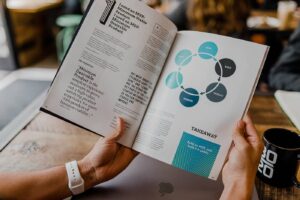Brain Health
Unlocking Brain Health Secrets
Are you ready to unlock the secrets to mental well-being and age gracefully? Discover the power of cognitive exercises, the importance of social connections, and the benefits of mindfulness and meditation practices. You can maintain a healthy mind as you age with proper nutrition and engaging in lifelong learning activities.
Join us on this transformative journey towards healthy aging and find the keys to a fulfilling and vibrant life. You deserve to thrive and belong in a community that values your mental well-being.
Cognitive Exercises for Brain Health
Start with the basics – incorporate various cognitive exercises into your daily routine to keep your brain healthy and sharp as you age. Brain training is essential for maintaining cognitive function and memory enhancement.
Engaging in activities challenging your thinking abilities can help strengthen neural connections and improve overall brain health. There are many ways to incorporate brain training into your daily routine. You can solve puzzles, play memory games, learn a new language, or even try meditation to improve focus and concentration.
These exercises stimulate your brain and provide a sense of accomplishment and belonging as you join others in the pursuit of mental well-being. So, make brain training a part of your daily life and unlock the potential for a healthier and sharper mind as you age.
Importance of Social Connections
Build meaningful social connections to promote mental well-being and healthy aging.
Social isolation can have a significant impact on your mental health, leading to feelings of loneliness, depression, and anxiety. Research shows that maintaining strong social connections can help reduce these adverse effects and promote a sense of belonging and well-being.
Regular social activities, such as joining community groups or volunteering, can provide opportunities to meet new people and build friendships. These connections offer emotional support and encourage cognitive stimulation and physical activity, both crucial for healthy aging.
Community support is vital in promoting healthy aging. It provides a network of individuals who can offer assistance, companionship, and resources.
Mindfulness and Meditation Practices
Continue promoting your mental well-being and healthy aging by incorporating mindfulness and meditation into your daily routine.
Mindfulness techniques, such as deep breathing exercises and body scans, help you stay present and aware of your thoughts and emotions. BPracticingmindfulness can cultivate a greater sense of calm and reduce stress.
Meditation, on the other hand, allows you to focus your attention and quiet your mind. This practice has improved concentration, enhanced self-awareness, and promoted emotional well-being.
The benefits of meditation extend beyond the present moment. Regular practice can lead to long-term improvements in mental health and overall quality of life.
Nutrition for Cognitive Well-Being
To optimize your cognitive well-being, incorporate a balanced and nutrient-rich diet into your daily routine. Your diet is crucial in supporting a healthy brain and improving memory. Here are some key points to consider:
Memory-enhancing foods: Blueberries, packed with antioxidants, help protect the brain from oxidative stress and may improve memory
Fatty fish: Rich in omega-3 fatty acids, they support brain health and may reduce the risk of cognitive decline.
Dark chocolate contains flavonoids that enhance blood flow to the brain, improving memory and cognitive skills.
Role of antioxidants: Antioxidants protect the brain cells from damage caused by free radicals, reducing the risk of cognitive decline. Foods rich in antioxidants include fruits, vegetables, nuts, and whole grains.
Engaging in Lifelong Learning Activities
Engage in regular lifelong learning activities to expand your knowledge and cognitive abilities continuously. Embracing intellectual stimulation is crucial for maintaining brain fitness and promoting healthy aging.
Lifelong learning keeps your mind active and allows you to explore new interests, skills, and perspectives. Whether you have taken a course, read books, attended lectures, or participated in workshops, these activities provide opportunities for personal growth and development.
By engaging in lifelong learning, you challenge yourself to think critically, solve problems, and adapt to new situations. It can enhance your memory, attention, and overall cognitive function. ALearningnew things can boost self-esteem and confidence, leading to a sense of fulfillment and purpose.
Remember, it’s never too late to start learning. Seek out opportunities that align with your interests and goals. Embrace the joy of discovery and the satisfaction of acquiring new knowledge.
Engaging in lifelong learning neeps your mind sharply and enhances your overall well-being. So, start today and unlock the endless possibilities for personal growth and fulfillment.











